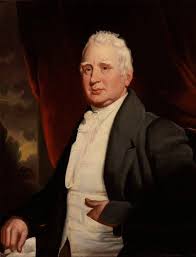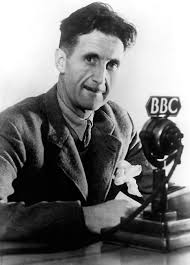The role of journalist is a multifaceted one. Between investigating, thinking, writing, and trying to be heard, journalists have the propensity to make a huge impact on society and their readers. This is a list of five such British journalists who—through actions, words, and a desire to shape the minds of the citizens they wrote for—changed the world.
1. William Cobbett
 One of the most fascinating things about William Cobbett is that he not only changed the world through his work, but he also changed himself. Readers could note his change from business conservative to liberal radical in his publication, the weekly Political Register.
One of the most fascinating things about William Cobbett is that he not only changed the world through his work, but he also changed himself. Readers could note his change from business conservative to liberal radical in his publication, the weekly Political Register.
Cobbett began his career with a very traditional world view and wrote on that topic with a fair amount of vehemence. However, when he started writing the Register, his tone changed as he wrote both opinion and fact pieces, which allowed him to circumvent the tax laws and made the paper available to the less wealthy and working class readers. With their audience, Cobbett found a voice.
While speaking to the lower classes, he sought to empower them. In the form of letters, he wrote A Grammar of the English Language to his teenage son. This, and later his series of how-to guides for self-sustenance, were messages to the lower class about empowering themselves with achievement, education, and ability.
He also did not shy away from confrontation, danger, or personal consequences for his actions, addressing the Prince Regent, the Bishop of Clogher, and enough other higher-ups that he found himself in Newgate prison for two years, charged with criminal libel. Cobbett left the world changed, and allowed himself the same journey. He hit a high mark and consequently left many with skills, knowledge, and information, while being a strong champion for their causes.
2. Daniel Defoe
The man best known for his story of a castaway who creates his own society, Defoe wrote more than just Robinson Crusoe, and he was more than just a novelist. A man active and impassioned about his beliefs, he attended Charles Morton’s academy for Dissenters rather than Oxford or Cambridge simply because he refused to compromise his Presbyterian Nonconformist beliefs. Defoe eventually rode with William III in Monmouth’s rebellion.
Like many other activists who expressed themselves through writing, Defoe’s satire did get him thrown in prison and complicated matters for him considerably. His active journalism was fueled by his work with the government where he acted as an agent and wrote A tour thro' the whole island of Great Britain. For almost ten years, Defoe published the Review, an incredibly influential paper. Robinson Crusoe was not written until he was almost 60. As engaging as it is as a novel, it’s also a prime example of the views of Defoe, as it addresses and confronts the idea of faith, slavery, class, finances, and personal ability.
3. George Orwell
 Author Eric Blair, better known as George Orwell, has become synonymous with the concept of dystopian fiction. He is well-known for books that are heavy on the theme of power corrupting, but his life story reveals that there was much more to the man who called himself Orwell.
Author Eric Blair, better known as George Orwell, has become synonymous with the concept of dystopian fiction. He is well-known for books that are heavy on the theme of power corrupting, but his life story reveals that there was much more to the man who called himself Orwell.
George Orwell fought for the Republicans in the Spanish Civil War and was wounded with a bullet to the throat. From this came Homage to Catalonia (1938), which supported his view of the war, and was decidedly different than the narrative the public had come to know.
Back in civilian life, Orwell became a writer and essayist and worked for many newspapers as a literary critic. He found himself eventually working for the BBC as a producer, but discovered that what was being called “journalism” was actually well-honed propaganda to further the cause of WWII. He quit to work on a socialist newspaper.
As Orwell came face-to-face with the truth about war, human nature, the reach of government and the media, his worldview was shaped, and near the end of his life, he wrote the two novels he would be remembered for: Animal Farm, which outlined the influence of Soviet leaders, and 1984 which gave a bleak view of government-controlled society. His work, ideas, and strong views shaped both the world and literature then, and they continue to have an impact today.
4. Katharine Glasier
A founding member of the Independent Labour Party (ILP), Katherine Glasier was second in her class at Cambridge, and though the college did not award degrees to women, she claimed the BA as her own. A tireless teacher, lecturer, and writer, Glasier worked through marriage and motherhood to help society and make the world a better place. Initially inspired by a demonstration of cottonworkers, she quit her job at an upper class school to take a lower paying position educating the working class.
Meeting, by chance, Edward Hulton at a political gathering, she began her journalism career by writing for the Manchester Sunday Chronicle. She spent her life working to improve things mainly through her role as a member of the ILP administrative council, as a novelist, and as editor of the Labour Leader and contributor to The Labour Woman and The Workman’s Times. Even after the ILP left the labour party, she continued her work and even spent some time collaborating and contributing to the Socialist League, the Society of Friends, and the Theosophical Society.
As a woman living and working during the turn of the century, her achievements and contributions are no less than remarkable, and the existence of the Margaret McMillan Memorial College, founded by Glasier, and her work with the Save the Children Fund, stand as signifiers of her legacy.
5. James Cameron
Witnessing an atomic bomb test was all James Cameron needed in order to be called into action as a journalist with a cause. Already a reporter for the Daily Express, having worked his way up from an office boy, he now had a vision of what he needed to do with his life. This led him to form the Campaign for Nuclear Disarmament, and his truthful and direct reporting on the Korean War led to his forced resignation when the owner deemed his work “communist propaganda.”
His work reporting and photographing on Ho Chi Minh during the Vietnam War resulted in a book Here is Your Enemy and a five-part series in the New York Times in 1965. He worked tirelessly with the BBC, completed documentary writing and producing, and served as a columnist for The Guardian in every effort to contribute to the awareness, humanity, and education of the general public.
Gunzenhauser, B. (2006). Cobbett, William. In S. Serafin & V. Myer (Eds.), Continuum encyclopedia of British literature. London, United Kingdom: Continuum. Retrieved here.
Martin Chilton, William Cobbett: forgotten chronicler of England, The Telegraph, 9 March 2015.
Kuhne, D. (2006). Defoe, Daniel. In S. Serafin & V. Myer (Eds.), Continuum encyclopedia of British literature. London, United Kingdom: Continuum. Retrieved here.
Hopkins, C. (2006). Orwell, George (Pseud. Of Eric Arthur Blair). In S. Serafin & V. Myer (Eds.), Continuum encyclopedia of British literature. London, United Kingdom: Continuum. Retrieved here.
Biography.com Editors. George Orwell Biography. Retrieved January 01, 2016, here.
Katharine Glasier. (2015, July 09). Retrieved January 31, 2016, here.









